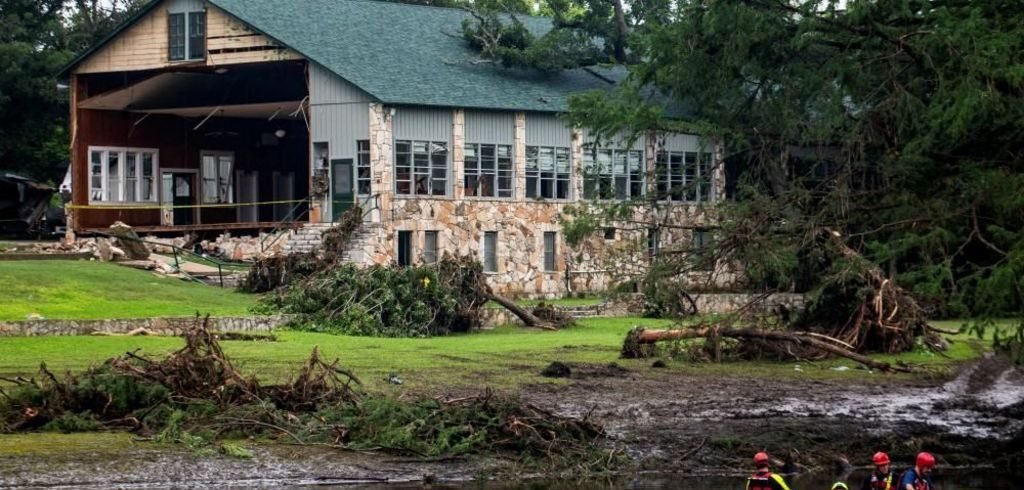In a transfer drawing sharp criticism from authorities oversight advocates and former staff, the Federal Emergency Administration Company (FEMA) positioned greater than 30 employees members on paid administrative depart after they signed an open letter warning that the company’s catastrophe readiness is dangerously compromised underneath the Trump administration.
The letter, generally known as the “Katrina Declaration,” was signed by over 180 present and former FEMA staff—together with 35 who recognized themselves by title and 141 who remained nameless resulting from fears of reprisal. It cautioned that FEMA’s restructuring, funding reductions, and the reassignment of skilled personnel to immigration enforcement hampered its potential to reply successfully to nationwide emergencies.
Among the many grievances highlighted: reductions in preparedness and mitigation packages, a requirement for Division of Homeland Safety (DHS) Secretary Kristi Noem’s approval of contracts over $100,000, and an absence of appointed, certified management. Signatories urged Congress to raise FEMA to cabinet-level standing and defend it from political interference.
Late Tuesday, not less than two signatories obtained discover that they had been instantly positioned on indefinite administrative depart—with pay and advantages intact—however ordered to examine in day by day. The company insisted the depart was “not disciplinary or punitive.”
FEMA defended the motion as a part of broader efforts to institute needed reforms and accountability. Critics—together with the non-profit group Stand Up for Science—condemned the transfer as retaliation towards whistleblowers and famous its resemblance to an analogous purge on the Environmental Safety Company (EPA), the place greater than 139 staff had been equally suspended earlier this summer time.
Sources near the scenario instructed Reuters that over 20 staff had been positioned on depart following the letter, echoing considerations about an increasing sample of administrative retaliation.
FEMA’s operational readiness has been underneath intense scrutiny lengthy earlier than the dissent letter. Inside reviews and exterior analysts warn that preparedness coaching has sharply declined, funding for mitigation has been slashed, and the company’s core infrastructure has been hollowed out. Roughly one-third of its workforce has departed via retirements, layoffs, or buyouts since January 2025.
Including to the disquiet, FEMA’s performing head, David Richardson—a DHS veteran and Marine Corps officer—issued bracing messages to employees after the firing of his predecessor, Cameron Hamilton. Richardson declared: “I alone in FEMA communicate for FEMA… Do not get in my means,” and made clear FEMA’s restructured mission underneath Trump emphasizes expediency over conventional preparedness.
The incident—and the letter’s warnings—come on the twentieth anniversary of Hurricane Katrina, typically invoked as a logo of FEMA failure wrought by bureaucratic dysfunction. Dissenters say present traits threat echoing that tragedy if not reversed.
Lawmakers from each events at the moment are calling for investigations into whether or not the executive leaves represent illegal retaliation and whether or not FEMA’s reorganization is weakening the nation’s resilience. With hurricane season underway and climate-related disasters on the rise, the stakes are significantly excessive.
FEMA’s suspension of personnel following the dissent letter exposes a rising stress between company veterans involved about mission erosion and an administration pursuing leaner federal oversight and elevated state duty. The truth that dissent is being handled as a personnel concern threatens to sit back inner advocacy—probably undermining earlier reforms meant to safeguard catastrophe preparedness.
Critics additionally word that the timing of the suspensions—instantly after the discharge of the Katrina Declaration—underscores the administration’s broader mistrust of profession civil servants. The letter itself had urged Congress to guard FEMA from “political retaliation and ideological interference,” language that now seems prophetic in gentle of the company’s swift response. A number of unions representing federal staff have already hinted at authorized challenges, arguing that whistleblowers can’t be punished for elevating issues of public security.
Restoring confidence in FEMA’s capabilities would require not solely institutional reflexiveness and funding stability but additionally safety for workers who increase legit considerations. Because the hurricane season intensifies, the nation’s potential to reply successfully might effectively hinge on whether or not FEMA can resist the push towards politicization and stay targeted on its foundational mandate: defending communities in disaster.


